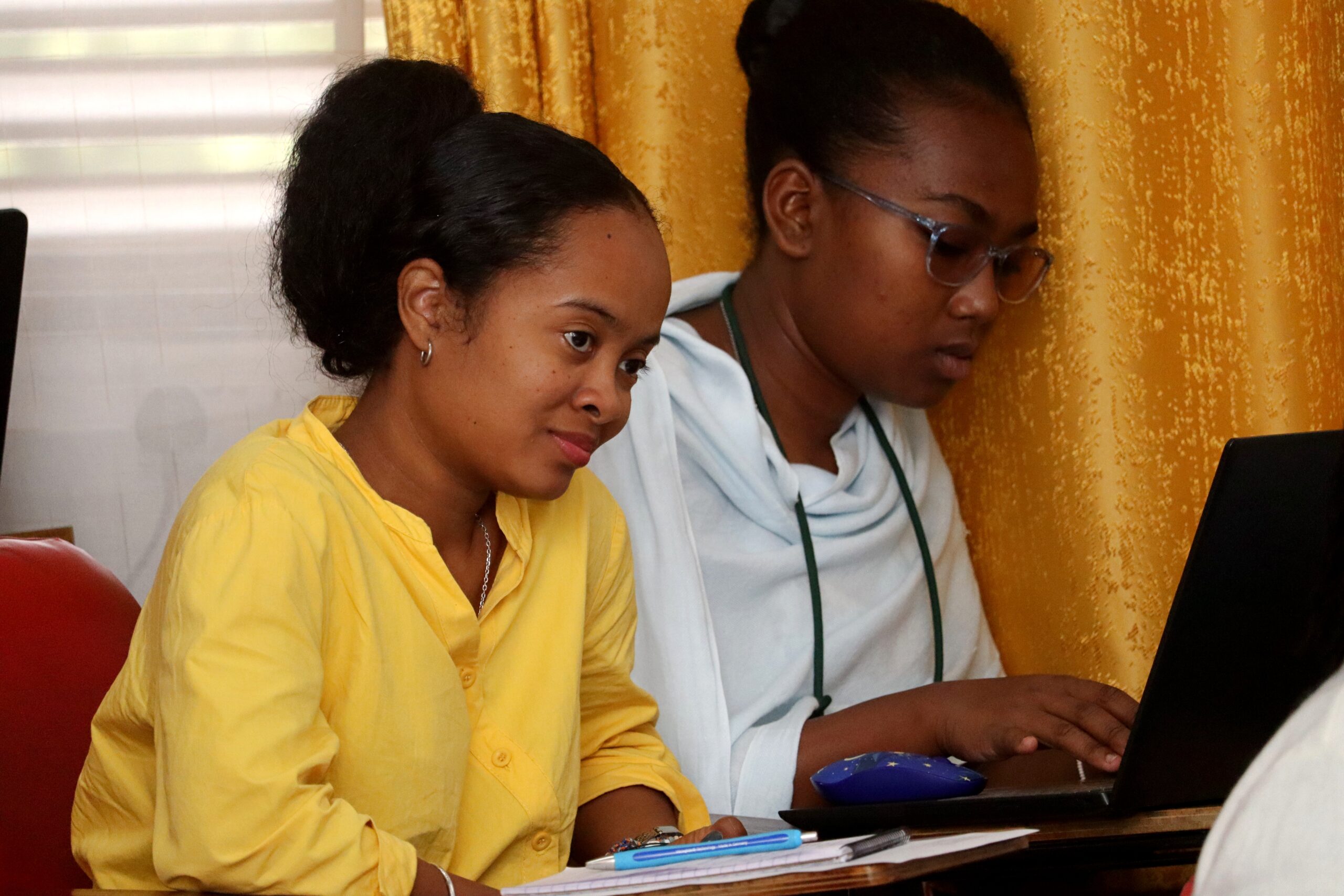
“There is more to scholarship than sitting in class and reading required articles.”
The Second Day of Hekima Research Week 2023 has gone down well with the same enthusiasm as the previous day. Interesting presentations on Artificial Intelligence (AI) as well as issues of conflicts, justice, peace, and reconciliation, dominated the talks. Mr. Joseph Michael Odhiambo whose presentation was titled “Beyond Creation: Exploring the Theological Dimensions of Artificial Intelligence” explored the cultural and societal impacts of AI and talked about AI in Religious Education, AI in Rituals, AI in the Dissemination of
Religious Texts, and AI’s Impact on Religious Institutions. He raised the question: can we as Catholics make our rituals such as absolutions during confessions available on AI? He suggested that we need to have frameworks so that fears such as people’s privacy being invaded by AI are alleviated.
Still on Artificial Intelligence, Dr. Odomaro Mubangizi, SJ presented: “Political Economy and Theological Discourse for the Fourth Industrial Revolution (4IR)”. He explored the creative and ethical dimensions of AI and pointed out that the creative potentials of AI in areas such as communication i.e. WhatsApp, Facebook, Instagram, etc. make billions of dollars using freely given data. &;Mark Zuckerberg the owner of Facebook I am told has over 200 billion users, is this not a nation? China which is perceived to be the most populated has just 1.5 billion. Africa is close to two billion and yet there is just one single person commanding over 200 billion people, meaning he can actually rent our countries, our nations, and have us for lunch or breakfast," Dr. Odomaro remarked.
When confronted with AI Dr. Odomaro observed that individuals act differently. There are those who would be critical about it, others would be skeptical, and others would be belligerent. Some would be indifferent while there are those who would be enthusiastic about it. “Will AI kill religion? the answer is No. If AI kills religion, then there was no religion, to begin with,” Dr. Odomaro said. Edridge Kaniaru Wanjiru who presented just before the session took a health break and shared about the place of law and justice in building peaceful societies: A Kenyan Case Study. He sustained that Kenyan political elections, which are synonymous with violence and instability are often referred to as politics of numbers where the tribe with more population would likely win an election for a political post.
He also argued that when it comes to insecurity and police brutality, most areas regarded as insecure and subject to police brutality are of low income. "If you are arrested around the Karen area which is upmarket, you will be treated differently than someone arrested in Mathare slum. The one arrested in Karen would be treated with dignity by the police (experienced police service) while the person arrested in Mathare is likely to be subjected to police brutality."
A former student Jesuit School of Theology at Hekima, Augustine Kofi, SJ presented on Towards a Holistic Reconciliation in Africa: A Quest for Peace, Stability in Africa. He pointed out that in Africa where we have weak structures, the church should be actively involved in building social order. His argument was that there is a need to reevaluate the Church’s commitment to reconciliation because most of the time, the Church focuses more on individual reconciliation rather than structural reconciliation and transformation. A more holistic approach to reconciliation needs to be considered. Finally, a third-year student, Tadele Baramo, SJ closed Day-Two presentations with “What to blame for Ethiopia’s Instability as one of African Countries”. Baramo observed that Ethiopia which is the only African Country that was not colonized yet is suffering the post-colonial and neo-colonial effects just like any other African country. This he said begs the question, what is to blame? As the research week progresses, the conversations that go beyond the conference room are getting more and more engaging. True to what HUC Principal Rev. Dr. Marcel Uwineza said at the beginning of this research week, truly there is more to scholarship than sitting in class and reading required articles.
By Pamela Adinda, HUC Communications, and International Office Coordinator